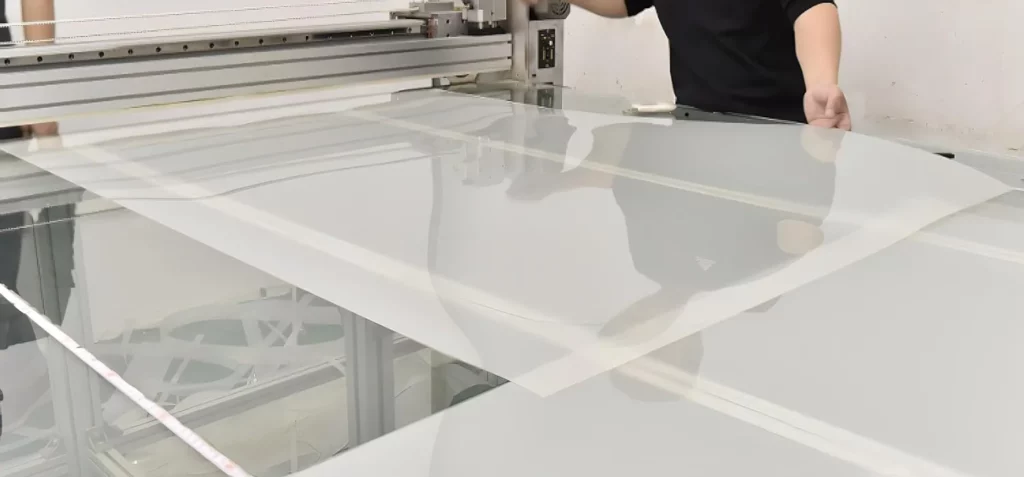
Smart glass is a revolutionary technology that brings adaptability and modern functionality to glass surfaces, allowing them to shift between transparent and opaque states with the press of a button or even automatically. This versatile feature has made smart glass increasingly popular in homes, offices, and other commercial spaces. In this guide, we’ll dive into what smart glass is, its uses, benefits, and the costs associated with installing and maintaining it.
At its core, smart glass (also known as switchable glass) is a type of glass that can change its transparency level based on external stimuli such as electricity, light, or heat. The most common types of smart glass work by applying a low voltage of electricity that changes the glass from clear to opaque. This switchable feature offers privacy on demand, making it an attractive choice for many applications.
There are several types of smart glass technologies, including:
These options allow consumers to choose smart glass tailored to specific needs, whether for energy savings, privacy, or both.
In homes, smart glass is typically installed in bathrooms, bedrooms, and living areas where privacy is desired without sacrificing natural light. It also helps regulate indoor temperatures by blocking excess sunlight, thus lowering cooling and heating costs.
Smart glass is a popular choice in offices, especially for conference rooms and open workspaces. It provides a quick solution for privacy, allowing rooms to be transformed from open and collaborative to private and closed with ease. Additionally, smart glass enhances the look of an office, creating a modern and tech-savvy appearance.
Hotels have adopted smart glass to offer guests a luxurious and customizable experience. For example, smart glass in bathrooms allows for privacy when needed while creating a spacious, open look when turned off. It’s also used in hotel room windows to reduce sunlight and improve comfort for guests.
In hospitals and clinics, smart glass provides privacy in patient rooms while maintaining a clean, sanitary environment. Unlike traditional curtains, smart glass is easier to disinfect and doesn’t need frequent replacements.
Some vehicles now feature smart glass in windows, sunroofs, and side mirrors. The technology provides better temperature control, reduces glare, and adds a touch of luxury to the vehicle’s design.
These varied applications show just how adaptable smart glass is, providing customizable solutions for privacy, aesthetics, and energy efficiency across different settings.
Smart glass comes with a host of benefits, making it a valuable addition to both residential and commercial properties. Here are the primary benefits:
One of the most sought-after benefits of smart glass is its ability to provide privacy on demand. This is especially useful in places like bathrooms, meeting rooms, and bedrooms, where you may want flexibility between an open and private space.
By controlling the amount of sunlight entering a space, smart glass can reduce energy costs associated with heating and cooling. The glass blocks excess heat on hot days and helps retain warmth during colder months, which translates to lower energy bills.
Smart glass adds a sleek, modern look to any space, making it an attractive option for homes and businesses that prioritize design. Its high-tech appearance can enhance property value and appeal to forward-thinking buyers.
Smart glass can also protect interiors from harmful UV rays, which can damage furniture, flooring, and artwork over time. The glass acts as a shield, blocking up to 99% of UV rays.
Smart glass provides an additional layer of sound insulation, making it ideal for busy environments like offices, homes near high-traffic areas, or even healthcare facilities where a quieter space is preferred.
These benefits make smart glass a versatile choice for anyone looking to combine style, functionality, and sustainability in their space.
The cost of smart glass can vary significantly based on factors such as the type of glass, installation requirements, and the size of the project. Here’s a breakdown of cost considerations:
On average, smart glass costs between $50 and $150 per square foot, depending on the technology used. For instance, PDLC smart film is generally more affordable than electrochromic glass. It’s essential to consider these costs upfront to determine which option fits your budget.
In addition to the cost of the glass itself, professional installation can add to the overall price. Installation charges can vary depending on the complexity of the setup. For larger installations, such as entire windows or walls, labor costs will be higher than for smaller applications like bathroom dividers or car windows.
Although the initial investment may seem high, smart glass can provide long-term savings by reducing energy bills. This return on investment (ROI) makes it an appealing choice for people looking to make their spaces more sustainable.
Maintenance costs for smart glass are relatively low. Smart glass typically requires only regular cleaning, much like traditional glass. However, any electrical issues in the wiring or control systems may require occasional repairs, which could add to the long-term cost.
Final Thoughts on Smart Glass Technology
Smart glass is transforming the way we think about windows and other glass surfaces. From its customizable privacy features to energy-saving capabilities, smart glass offers a powerful solution for anyone wanting to modernize their space. While the initial cost might be higher than traditional glass, the advantages—including lower energy bills, enhanced privacy, and a sleek, modern look—make it a valuable investment for both residential and commercial settings.
As the smart glass market continues to grow, this technology is likely to become even more accessible and affordable, making it a practical option for homes, offices, hotels, and beyond.
Smart glass film provides a flexible, easy-to-install solution. If you’re interested in discovering how smart glass film can enhance your space with privacy and energy savings, check out our smart glass film for more details.
Our US-based company, located in Virginia, specializes in the installation of smart film and smart blinds. We were founded in 2022.